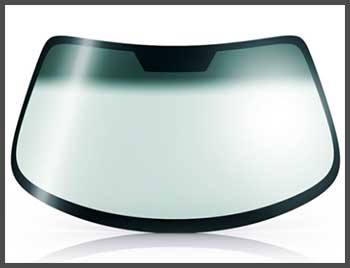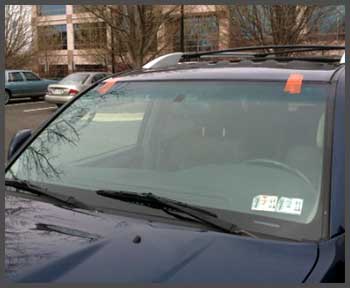When it comes to ensuring the quality and safety of your vehicle, few aspects command as much attention as your windshield. Two of the most renowned players in this space are PGW Glass and OEM (Original Equipment Manufacturer) windshields.
Choosing between these can feel overwhelming, especially if you’re unfamiliar with the terminology and the individual benefits of each. Let’s unravel this mystery in an easy-to-understand and engaging way.
A Brief Comparison Table
| Aspects | OEM Windshields | PGW Glass |
| Material Quality | High; Exact match to the original | High; May not match the original |
| Compatibility with Vehicle Features | High; Exact match to the original | Varies; May not accommodate some specialized features |
| Cost | High; Due to superior quality and perfect fit | Lower; More affordable option |
| Availability | Varies; Can be limited for some car models | Wide; Faster availability due to extensive distribution network |
| Fit and Finish | Perfect; Matches the original specifications | Good; Strives for precision, but may not be exact |
| Safety Standards | Meets all safety standards | Meets all safety standards |
What’s In A Name: OEM Windshield

An OEM windshield is one that’s essentially identical to the one that came with your car when it was brand new, manufactured by either the same company that made the original windshield or another authorized supplier.
This means that OEM windshields perfectly match the specifications, shape, and features of your original windshield.
The Pros of OEM Windshield
- Quality Assurance: The biggest advantage of OEM windshields is the quality assurance that comes with them. They’re made with high-grade materials and must adhere to stringent safety and quality standards.
- Perfect Fit: As these are made according to the original specs of the car’s make and model, they offer a perfect fit and seamless integration with your vehicle’s structure.
- Compatibility: They’re designed to accommodate all of the features of your vehicle, such as rain sensors, collision sensors, and heating elements.
The Cons of OEM Windshield
- Cost: OEM windshields are typically more expensive than other options due to their superior quality and perfect fit.
- Availability: Depending on your vehicle’s make, model, and year, it might be challenging to find an OEM windshield, which may increase the waiting time for repairs.
The PGW Glass Perspective
PGW (Pittsburgh Glass Works) is a leading supplier of auto glass products around the globe. They’re recognized for their advanced technologies and top-notch quality standards in the automotive industry.
The Pros of PGW Glass
- Affordability: PGW windshields are usually more affordable than OEM windshields, making them a popular choice for car owners on a budget.
- Quality & Safety: PGW meets all the safety and quality standards set by the U.S. Department of Transportation, providing peace of mind to consumers.
- Availability: PGW has an extensive distribution network, ensuring quicker availability of their products.
The Cons of PGW Glass
- Fit and Compatibility: While PGW strives for precision, their windshields may not offer an identical fit compared to OEM windshields.
- May Lack Some Features: Certain specialized features present in OEM windshields may not be available in the PGW variant.
Key Differences Between PGW Glass and OEM Windshields
Understanding the key differences between PGW and OEM windshields can help car owners make informed decisions about which option is best for their unique needs. Let’s break down the most significant distinctions in more detail.
- Material Quality

The material quality of OEM windshields is often superior because they use the exact same glass and production processes as the windshields that come pre-installed in your vehicle.
High-end car manufacturers, in particular, often use unique, proprietary glass technology, making OEM windshields the only direct replacement.
PGW windshields are also made from high-quality materials and meet the stringent safety and quality standards set by the U.S. Department of Transportation.
While they may not have the proprietary materials and technologies found in some OEM windshields, they are still robust and designed to provide safety and durability.
- Compatibility with Vehicle Features
OEM windshields are often the best choice for vehicles with advanced features such as rain sensors, head-up displays, or collision sensors. Since they are designed to the car manufacturer’s exact specifications, these windshields are perfectly compatible with the vehicle’s features.
PGW strives to accommodate a wide range of vehicle features in their windshields. However, due to the lack of access to certain proprietary technologies used by car manufacturers, some specialty features may not be compatible with PGW windshields.
- Cost
Since OEM windshields are made to the exact specifications of the vehicle manufacturer, they tend to be more expensive. The high cost is often justified by the windshield’s quality, compatibility, and perfect fit.
One of the significant advantages of PGW glass is its affordability. If you’re on a budget, PGW windshields can be an excellent choice without compromising safety and quality.
- Availability
Depending on your vehicle’s make, model, and year, the availability of OEM windshields can be limited. For some models, it might take more time to source the exact windshield.
With a broad distribution network, PGW ensures the quicker availability of their products, even for less common vehicle models.
Also Read: Comparison of Bosch AeroTwin And ICON Wiper Blades.
Frequently Asked Questions (FAQ)
Whether an OEM windshield is ‘better’ depends largely on your specific needs and preferences. OEM windshields are manufactured to the exact specifications of your car’s model, ensuring a perfect fit and compatibility with all your vehicle’s features. However, they are more expensive than alternatives. On the other hand, brands like PGW offer high-quality, affordable options that meet federal safety standards.
PGW stands for Pittsburgh Glass Works, a leading global supplier of auto glass products. PGW provides windshields that are recognized for their quality and advanced technologies.
While PGW is a global company with facilities around the world, the majority of their manufacturing facilities are located in North America. The company prides itself on maintaining high quality and safety standards across all its production sites, regardless of their geographical location.
Final Thoughts
Each type of windshield offers unique advantages and may be more suitable depending on your vehicle type, the features it includes, your budget, and your personal preferences.
Always consult with a professional windshield replacement service to help guide your decision-making process.

